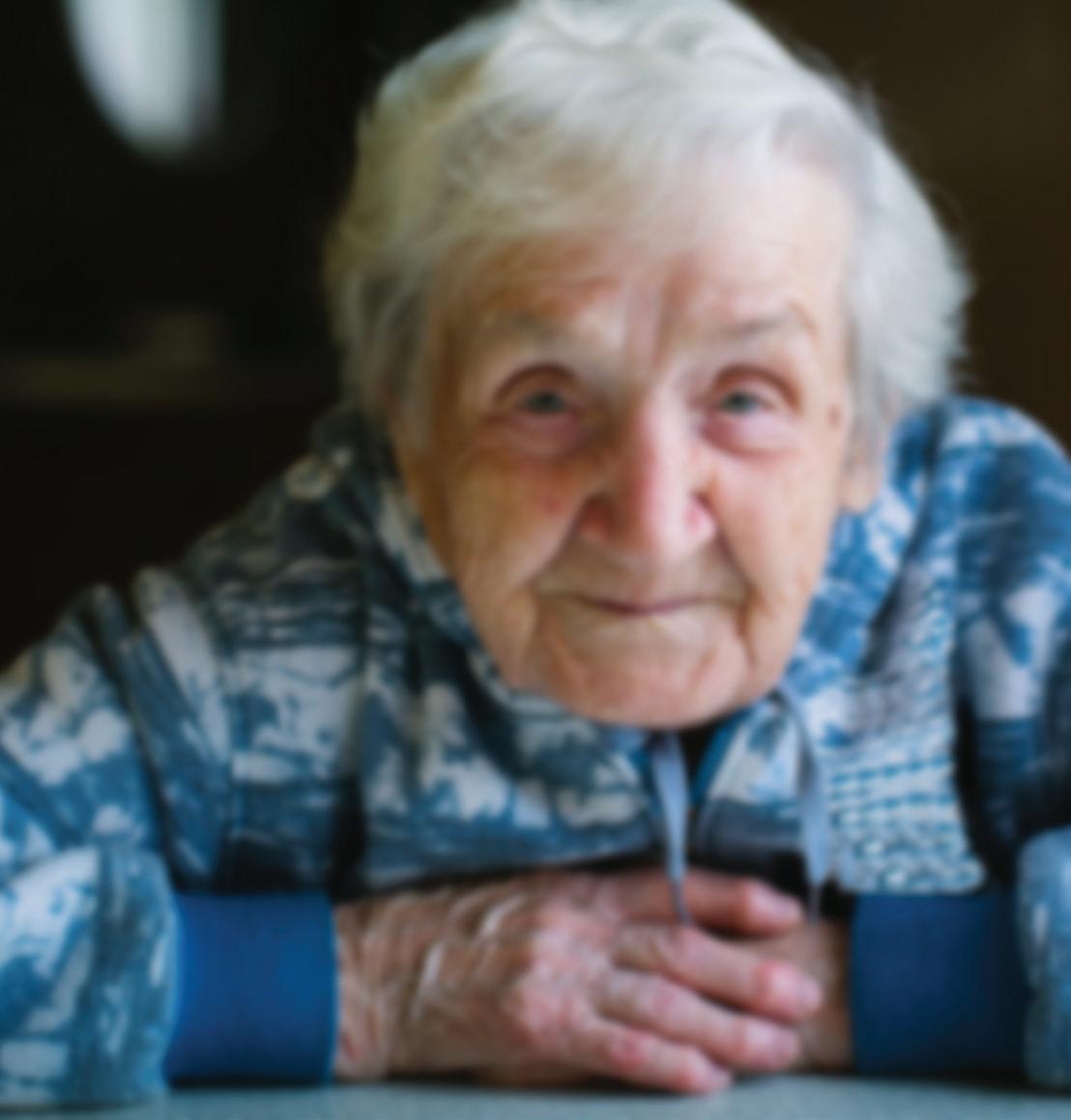
15 minute read
CMM News
COVID-19 testing expanded for social care
Government has announced that more COVID-19 testing will be carried out for social care, with all care home residents and all social care staff with COVID-19 symptoms being tested for the virus.
Up until this announcement, testing was available for the first five symptomatic residents in a care home setting to provide confirmation of whether there was an outbreak.
However, Government has expanded testing to include all care home residents and staff who develop symptoms.
Testing will now also be provided to all those who are to be discharged from hospital to a care home, before they are discharged. If the person tests positive, providers will be able to take appropriate action to ensure that social care workers and other residents are safe – including implementing isolation procedures for those who test positive.
The Health and Social Care Secretary has also confirmed that every social care worker who needs a test can now get one.
Government will prioritise the testing of symptomatic social care workers and anyone in their households who have COVID-19 symptoms.
The Care Quality Commission (CQC) is leading the co-ordination of more COVID-19 testing for social care, and should by now have contacted all 30,000 care providers.
Care providers should identify workers eligible for testing and refer them to their local testing centre.
COVID-19: adult social care action plan
The Government has set out its plan for how it will support the adult social care sector in England throughout the coronavirus outbreak. It includes details about controlling the spread of infection in care settings, supporting the workforce, supporting independence, supporting people at the end of their lives, responding to individual needs, and supporting local authorities and the providers of care.
The plan applies to all settings and contexts in which people receive adult social care. This includes people’s own homes, care homes and care homes with nursing, and community settings. It applies to people with direct payments and personal budgets, and those who fund their own care.
The sector has responded with mixed feelings, with most grateful for the plan but worried it’s come too late. Voluntary Organisations Disability Group (VODG) has called the plan a 'canter through the Government’s reactions thus far', stating, 'What the sector needs is a clear plan that instils confidence among social care providers coupled with a meaningful commitment of financial investment in a sustainable future.'
Meanwhile, Helen Walker, Chief Executive of Carers UK, said, 'At long last, the Government has recognised the role of the social care sector in this fight back against coronavirus...A plan for our sector should have come sooner. 'It’s good that testing and personal protective equipment (PPE) are now being prioritised for social care workers who need it most, but it is vital that it reaches them. There must also be enough for unpaid carers, some of whom are caring for extremely vulnerable people, including those who are shielding.'
Chair of Social Care Institute for Excellence (SCIE) and former Care Minister, Paul Burstow, stated, 'The growing death toll amongst social care workers and those they care for is deeply distressing. It demands a determined effort to ensure that social care now gets everything it needs to carry on caring. The Government’s strategy is an overdue recognition that social care is on the front line battling to keep the most vulnerable and frail safe from COVID-19. A fitting legacy of the pandemic would be that finally after decades of delay the time has come for reforming our social care system, not for patching.'
Joint statement on advance care planning
The Care Quality Commission (CQC), Care Provider Alliance (CPA), British Medical Association (BMA) and Royal College of General Practice (RCGP) have issued a joint statement on advance care planning.
The statement sets out and reaffirms guidelines on advance care planning, noting that plans should be individual and not applied to groups of people. It accepts there is additional pressure on providers currently, but says, 'The importance of having a personalised care plan in place, especially for older people, people who are frail or have other serious conditions has never been more important than it is now during the COVID-19 pandemic. 'Where a person has capacity, as defined by the Mental Capacity Act, this advance care plan should always be discussed with them directly.'
With regards to those who do not have mental capacity to decide on care plans for themselves, the statement suggests, 'It is reasonable to produce such a plan following best interest guidelines with the involvement of family members or other appropriate individuals.'
The statement is extremely clear on how advance care plans should be applied to people, expressing that decisions must be made on an individual basis.
More information is available at www.scie.org.uk.
The Care Quality Commission (CQC) has announced a new COVID-19 registration framework to support providers to be reactive during the outbreak.
The CQC website states that a COVID-19 registration is any application from a health or social care provider which: • Intends to deliver services which provide additional health and social care capacity in an area. • Contributes to the control of the outbreak of coronavirus or the treatment of people who have contracted the illness.
For existing social care services that might want to make a change to their registration, for example to increase capacity or to add a location, the regulator has set out the process that needs to be followed.
CQC states that, when assessing these applications, it will look at management and response to COVID-19 against Safe and Well-led, and that any changes may be treated as conditions to registration for the duration of interim arrangements.
In many urgent cases, CQC has said that a provider can increase its capacity as soon as the regulator is notified and CQC can run the registration process at the same time as the provider makes the requested changes.
A blog written by CQC explains the full process for the COVID-19 registration framework, and there is more information on the CQC website.
Parallel Supply Chain for PPE access
The Department of Health and Social Care has announced it will be putting in place a Parallel Supply Chain for health and care providers to access PPE during the coronavirus pandemic.
The aim is to improve the delivery of essential items, both in terms of speed and reliability, and to ease the pressure on the usual supply chain so that it is able to deliver other products that are needed day-to-day.
Until this new solution is fully operational, two processes are being undertaken: • The Department of Health and Social Care is working to provide stock of PPE equipment to wholesalers and distributors for pharmacies, GPs, dentists, adult social care providers, and the third sector. It suggests that this will enable more providers to order PPE through their usual supply chains. • The Department of Health and
Social Care has mobilised the National Supply Disruption Response (NSDR). It asks providers who have an urgent need for PPE, who are unable to fulfil this need through their business as usual channels, to contact the NSDR via the 24/7 helpline: 0800 915 9964 (Freephone number in the UK). Callers will need to have certain details and information to hand, and this is listed in the letter.
In the letter announcing the Parallel Supply Chain for PPE access, there is also a list of frequently asked questions, as well as details of business as usual suppliers of PPE.
Read the letter in full on the Care Quality Commission website.
Trusted legal services
REGULATION • COMPLIANCE • ADVOCACY
Ensure: Outstanding practice is reflected in ratings successful registration applications early resolution of regulatory and legal issues
giving you more time to care...

Errol Archer Solicitor Advocate HEALTH AND SOCIAL CARE LAW For a free, confi dential consultation, contact me on 020 7129 7961 or 07729 421836
COVID-19 guidance for care homes Government has published detailed guidance for care homes who are supporting people during the COVID-19 outbreak. It is specifically for the residential care sector, including registered providers of accommodation for people who need personal or nursing care, local health protection teams, local authorities and clinical commissioning groups (CCGs). Regarding homecare providers, the document states that the Government will 'continue to provide domiciliary care providers with the information they need to continue providing care during the COVID-19 pandemic.'
Containing information on the admission and care of residents, the COVID-19 guidance for care homes covers aspects such as reporting of COVID-19 cases and national support available to implement the guidance.
There are also annexes containing useful information and contacts for topics such as infection control, receiving residents who have been discharged from hospital and isolation of symptomatic residents. The full document can be read on the Government website.
On the Social Care Institute for Excellence (SCIE) website, there is also a set of answers to questions asked by both people using adult social care services and providing services to people.
Interim guidance on DBS and other recruitment checks In response to temporary changes being made by the Disclosure and Barring Service (DBS) to DBS applications and processes, interim guidance on DBS and other recruitment checks has been issued. This is aimed at providers recruiting staff and volunteers to health and social care services in response to coronavirus.
It applies to individuals (paid staff and volunteers) being recruited as a consequence of and during the coronavirus pandemic, is applicable when providers need to start staff urgently, and waiting for a full DBS check could cause undue delay, and this delay could lead to risks to the continuity of service, impacting the safety and wellbeing of people using the service.
The guidance will be in operation for the period the Coronavirus Act 2020 remains in force and will be reviewed on a regular basis.
The full guidance can be found on the CQC website.
COVID-19 programme
A coronavirus programme has been created by Health Education England e-Learning for Healthcare (HEE e-LfH) in response to the global coronavirus pandemic.
The programme includes key materials to help the health and care workforce respond to coronavirus, such as essential guidance from the NHS, UK Government and World Health Organisation, information on Infection prevention and control, resources for staff working in critical care settings, resources for staff working in primary care and community settings, resources for nurses and AHPs returning to work, being redeployed or up-skilled, resources for other healthcare staff returning to work, resources for end of life care during COVID-19 and much more. Content is updated and added to as new information and guidelines emerge.
Visit the website for more information, www.e-lfh.org.uk.
specialist healthcare business agents


SOLD
Avenue House and Apple Tree Court, Wolverhampton
Independent expertise Nationwide knowledge
DC Care is delighted to announce the recent sale of Avenue House and Apple Tree Court in Wolverhampton, upon the instructions of the Joint LPA Receivers, J Karr & S Killick of Begbies Traynor.
When industry knowledge and wisdom are needed, when a discreet sale is desired, our clients choose DC Care to sell their healthcare business.
SALES | ACQUISITIONS | APPRAISALS | CONSULTANCY
Government has released guidance for family carers who are supporting someone who cannot manage without their help.
Building on the Stay at home guidance and the Guidance on social distancing, the latest information gives tips on what carers can do to ensure they are protecting themselves and the vulnerable people they support. This includes creating an emergency plan, advice for those caring for someone in the 'extremely vulnerable' category, what to do if they are worried about visits from home care workers, accessing alternative care if the family carer is unable to provide support and collecting prescriptions.
The guidance recommends that people speak to care providers about processes they are following to ensure good hygiene, and that clients should inform their providers if they are reducing social contact and whether this will affect their care package. Alternative packages may need to be put in place. The full guidance is on the Government website.
Guidance on Care Act easements
The Government has published guidance for the Care Act easements in place to help councils with the coronavirus pandemic.
Easements have been created under the Coronavirus Act 2020 and aim to ensure support is given to the people who need it most. They make temporary changes to the responsibilities of local authorities set out in the Care Act 2014, detailing what does and does not have to be carried out.
For instance, local authorities will not have to carry out detailed assessments of people’s care and support needs. However, they are still expected to respond as soon as possible to requests for care and support, and to consider the needs and wishes of people needing care and their family and carers, and they must still make an assessment of what care needs to be provided.
Councils must also still be able to give providers enough information about a person's needs and circumstances that they are able to make an informed decision on whether or not to accept the referral.
The full guidance on Care Act easements is available on the Government website.
Centre for Ageing Better
Following the release of its report, Doddery but dear? Examining agerelated stereotypes, the Centre for Ageing Better is highlighting how the coronavirus epidemic shows why it’s so important to ‘get it right’ when talking about ageing.
The report found attitudes to ageing and older people in the UK are mostly negative, with older people seen as incompetent, hostile or a burden on society.
The report also found that negative stereotypes are rife in the workplace, in health and social care and in the media, with women and people from black and minority ethnic groups facing ‘double jeopardy’ of discrimination.
Chief Executive, Dr Anna Dixon said in light of the COVID-19 outbreak, articles that celebrate a ‘cull’ of the elderly remind us to think more carefully about our attitudes towards ageing. She believes when it comes to coronavirus, the impact of language and attitudes that lump everyone over a certain age into a category labelled ‘vulnerable’ could do much more harm than good.
NCF data on deaths in care homes
The National Care Forum (NCF) has revealed a potential doubling of COVID-19 related deaths in UK care homes in just one week.
With deep concerns that the national statistics for coronavirusrelated mortality rates presented by Government were not incorporating deaths within care homes and care homes with nursing, the NCF led an independent benchmarking exercise of its members. Of its care provider members, 47 contributed to the audit, representing 1,169 care services that collectively support 30,217 people across the UK – 7.4% of the overall residential care sector.
The report compares baseline data from providers at the earliest stages of the pandemic, from 6th March to 7th April, with results from 7th April to 13th April. It demonstrates a significant increase in coronavirus-related deaths within care homes, which, when scaled up, suggest that more than 2,500 care home residents may have died of suspected or confirmed COVID19 during this one week period, representing a 193% increase.
This analysis also suggests that 4,040 people may have died of coronavirus in UK residential services before 13th April, rising to 7,337 when including the deaths of individuals who were admitted to hospitals.
The NCF hopes that this data on deaths in care homes will put into sharp focus the challenges of the adult social care sector and deliver greater support from Government, at a national and local level.
CQC sets out action
The Chief Inspector of Adult Social Care, Kate Terroni, has written to the adult social care sector highlighting the action the regulator is taking to support providers at this time.
In her letter, Kate Terroni outlines how the role CQC plays in Government’s action plan for adult social care is very much shaped by what the regulator has heard from providers.
The letter sets out what CQC is doing to help care staff get access to testing, and to ensure greater transparency on the impact of COVID-19 on the care sector.
The full letter can be found on the CQC website.
Sparkle for Social Care
Backed by the Care Sector Fundraising Ball Committee, a new campaign is asking people to wear anything that sparkles or to put fairy lights or tinsel in their windows to show their support for social care.
The Sparkle for Social Care campaign is aimed at raising money for Care Workers’ Charity and encourages people to donate £1 and post photos on social media using the hashtag #SparkleforSocialCare. The campaign wants to show those who care for society’s most vulnerable that they are valued and appreciated.
Donations can be made on the Just Giving webpage.
C19 CONTROL
A new, free service has been released to support providers with recording how coronavirus is impacting the people they care for as well as PPE levels.
Sign up on www.c19control.com or for more information, read the interview with Duncan Campbell on the CMM website.



UNLEASH the power of
DIRECT DEBIT & take control of your cash flow

As a successful business you will be adding new customers all the time and the method you use to collect payments from them will make a big difference on your time, resources and cash flow.
Direct Debit is the very best way to take control of your cash flow and save money. It’s reliable, it’s secure and it puts you in control of customer payments. It’s easy; it’s even easier with Eazipay. • Control cash-flow
• Guarantee income
• Reduce admin costs
• Save time and money
• Easy to change payments
• Reduces the risk of fraud
T: 01353 864 949
bacs approved bureau
E: sales@eazipay.com W: www.eazipay.co.uk
electronic payments a liate





